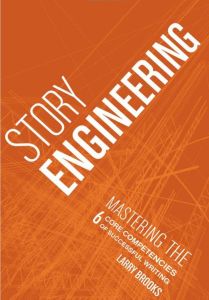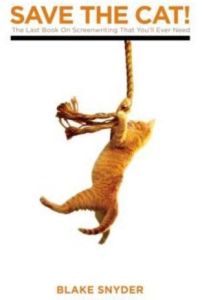I love when I make my readers think. Even better is when they turn around and make me think even deeper about an issue. *smile* Yesterday, K.J. Pugh blogged about my last post (where I talked about cliffhangers and hooks) and brought up the issue of sequels I briefly mentioned. No, […]
Pin It
Read More
We all have weaknesses. Some people want to deny their imperfections, but most of us do what we can to overcome them. Like many writers, one of my weaknesses is my inability to interpret my words the way a reader does. That’s not unusual. We know what we meant to […]
Pin It
Read More
In my post last week asking if we can have too much voice, some great questions came up in the comments. I decided to turn them into “Ask Jami” blog posts rather than bury the answers in the comment string. Earlier, I shared ideas on how to use color-coding to check if […]
Pin It
Read More
In my last blog post, where I shared the “two-paragraph guideline,” some great questions came up in the comments. Rather than bury the answers in the comment string, I decided to turn them into “Ask Jami” posts. Today, we’re talking about how to make sure we’re using all the various writing […]
Pin It
Read More
Last time, we discussed Blake Snyder’s Save the Cat craft book and how we can use his writing tools to revise our work. His beat sheet points out when story events (beats) should occur in a screenplay, and most of his advice applies to all forms of fiction writing. Whether we dig into […]
Pin It
Read More
Before I start, thank you to everyone who commented, tweeted, and emailed me with support after my last post about losing my cat. You all have filled me with virtual hugs and put a smile on my face. Thank you. *hugs back* In fact, after writing that post and reading […]
Pin It
Read More
It was a dark and stormy blog post. *snicker* We’re continuing to prepare for the January 10-16th Pitch Your Shorts pitch session by tackling the issue of story openings. (Check out Tuesday’s post for everything there is to know about pitching.) While the purpose of a pitch is to get a request, […]
Pin It
Read More
*Quick Reminder: Don’t forget the Pitch Your Shorts pitch session coming January 10th. Get your 10-60K stories ready. More details to come.* I hope everyone is having a wonderful holiday season, no matter what holidays you celebrate. While I’m enjoying some time with my family, I’ll share this post originally written […]
Pin It
Read More
I’m excited to share today’s guest post by editor A. Victoria Mixon with everyone. Her new book The Art & Craft of Story: 2nd Practitioner’s Manual recently came out and is a great addition to our writing craft library. In fact, her blog tour posts have been excerpts from this […]
Pin It
Read More
With fiction, a fine line exists between stories we can relate to (no matter how fantastical the setting, characters, or plot) and those we can’t. We’ve all heard the phrase “suspension of disbelief” in relation to movies and books to explain how we accept the impossible. Every genre has different […]
Pin It
Read More










